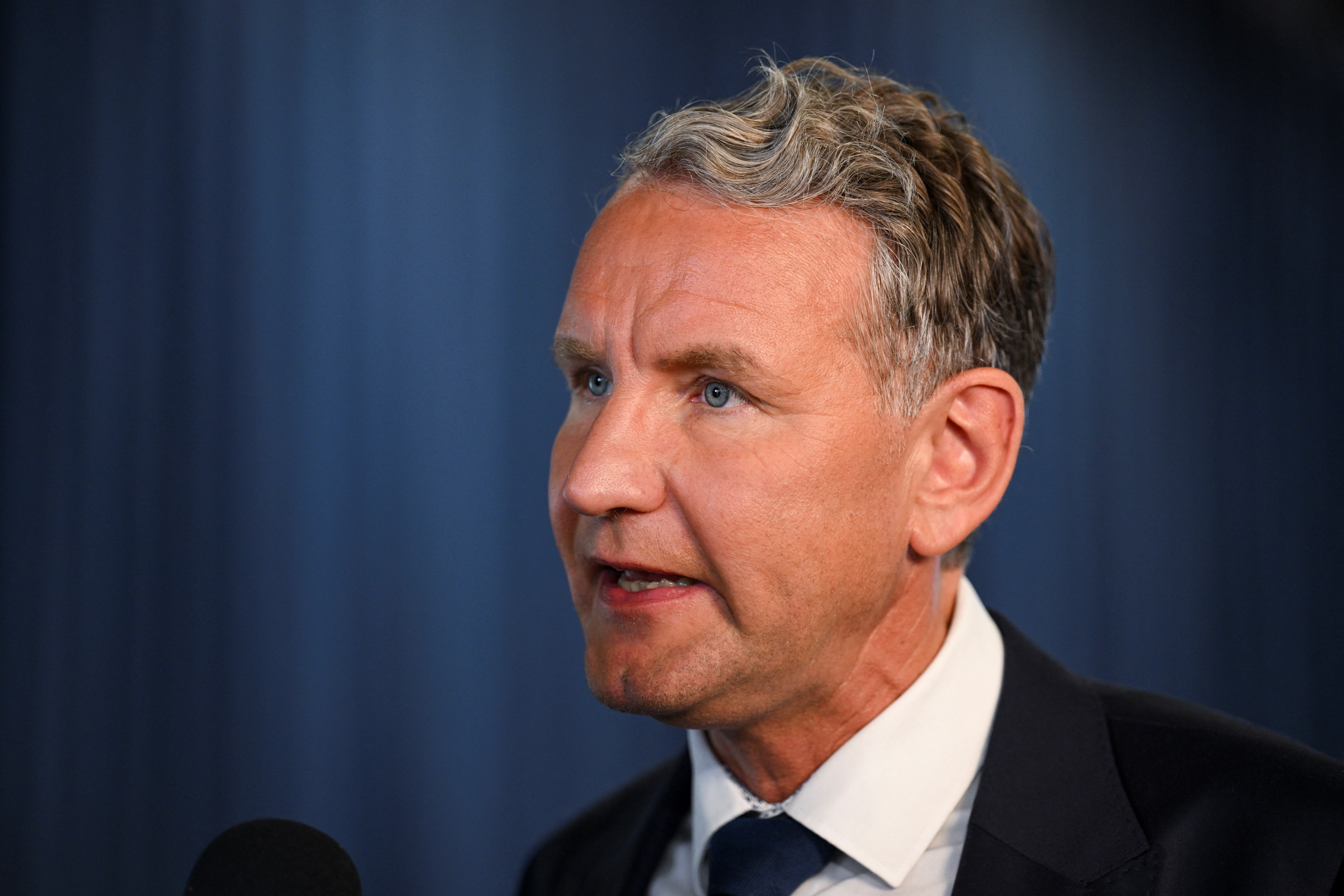TV clash with German far-right leader shows limits of defences

By Thomas Escritt
BERLIN (Reuters) – A television debate between the leader of the German far-right’s most extreme faction and the centre-right’s leader in the same region highlighted the fragility of Germany’s defences against the far-right.
Bjoern Hoecke, the Thuringia leader of the far-right Alternative for Germany (AfD), which is leading in polls ahead of state elections in September, faced off against Christian Democrat state leader Mario Voigt in a 70-minute duel on Thursday night that analysts saw as satisfying both sides’ political interests.
Hoecke is the figurehead of the AfD’s most radical wing, famed for complaining that Nazi leader Adolf Hitler “is always presented as absolute evil” and for using ambivalent phrases such as “all for Germany” – which the former history teacher said he had not known was the slogan of Hitler’s paramilitaries.
Voigt and the two moderators from Welt television largely attempted to pin Hoecke down on these and other quotes from Hoecke’s past, with Voigt accusing Hoecke of endangering Germany’s prosperity by pushing for it to leave the EU.
“I am a democrat, you are authoritarian,” Voigt told Hoecke in one of many barbs he levelled.
Hoecke sought to dispel suspicions that he is a neo-Nazi, presenting himself as a moderate potential coalition partner for Voigt.
“My hand is always stretched out in greeting,” he said, talking of how, as a former teacher and father “nothing could be further from me than hate”.
He described the Nazi Holocaust as “an outrage”.
The AfD has faced repeated street protests since the leaking in January of meeting minutes where a senior party member discussed the “remigration” of “unassimilated” migrants with German passports.
Hoecke attempted to redefine this, stating, to incredulity from his debate partners, that “remigration” was about persuading the 1.5 million Germans who lived abroad to return home.
But the elevation of the AfD’s most controversial figure to a debate partner was also a sign that the mainstream parties’ wall against the far-right – the principle that they will not govern with the party nor treat its emissaries are normal political figures – has limits.
For Voigt, analysts said, debating a controversial figure offered a valuable chance to profile himself, leader of the party running second in the polls, against Bodo Ramelow, the popular Left party state premier, who runs a minority government.
“It may have been a success for both, because it turned September’s election into a choice between Hoecke or Voigt,” political scientist Andre Bodocz told Der Spiegel.








